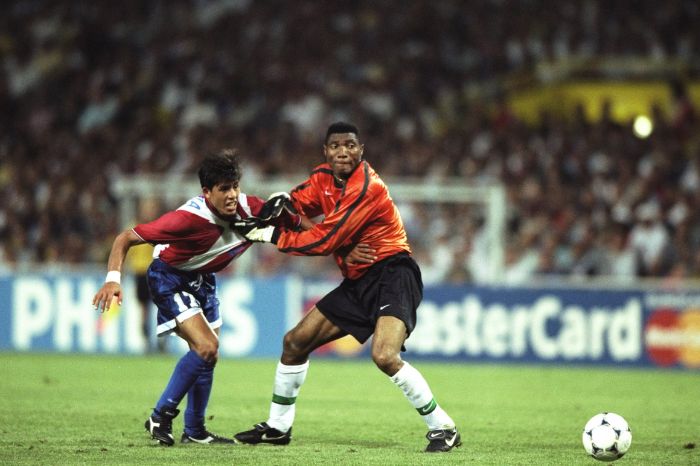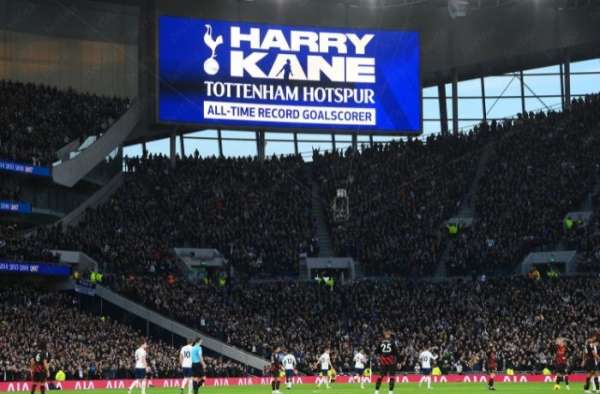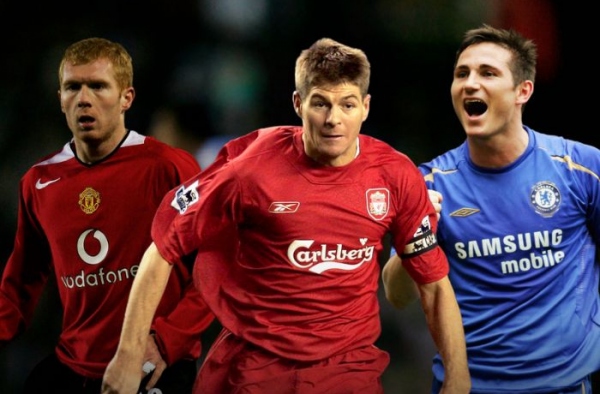Follow @iambolar on X for more expert analysis.
An entire generation of Nigerians recall Peter Rufai not for his prime fondly known as Dodo Mayana, as the veteran goalkeeper in Nigeria’s ill-fated campaign at the France ’98 FIFA World Cup. Unfortunately, that image has unfairly clouded the remarkable legacy of one of the most iconic goalkeepers ever to wear the green and white.
Rufai’s journey to national acclaim began in the early 1980s when he rose to prominence as a teenage goalkeeper for Stationery Stores FC of Lagos. In the 1980 FA Cup final, he was already showing signs of brilliance, although a lone penalty by Sam Okpodu secured the trophy for Bendel Insurance. However, due to Insurance’s CAF ban, Rufai and his youthful Stores side took Nigeria’s slot in the 1981 African Cup Winners’ Cup and nearly won it.
New tournament. Same goal ?
— Bet9ja: The home of #betBOOM! ? (@Bet9jaOfficial) May 20, 2025
Bet9ja are proud to be the official sponsor of @NGSuperEagles 2025 AFCON campaign!
Let’s Do It Again, Super Eagles ??? pic.twitter.com/4V91lWcCSN
That Stores team, led by Coach Godwin Obiyan and featuring talents like Wakilu Oyenuga and a young Tarila Okorowanta, battled all the way to the final. In the first leg away to Union Douala of Cameroon, Rufai was phenomenal, saving a penalty to earn a 0-0 draw. But heartbreak followed in the return leg in Lagos. A red card for Yomi Peters in the opening 10 minutes left the team undermanned, and when Rufai was stretchered off after a collision that led to Douala’s goal, the dream was over. Stores lost the trophy and Nigeria lost a historic continental chance.
Despite the setback, Rufai’s stock continued to rise. Coach Festus Onigbinde would later build the national team around a core that included Rufai, Stephen Keshi, and other emerging stars. In 1982, Rufai was in goal as Nigeria beat Ghana in Kumasi for the first time, 2–1 in an Olympic qualifier a match that signaled the start of a new era for Nigerian football.
He would go on to feature in four editions of the Africa Cup of Nations—1984, 1988, 1992, and the victorious 1994 campaign. His heroics were often the thin line between heartbreak and triumph. In the 1988 semi-final, it was Rufai’s penalty save against Algeria’s Lakhder Belloumi that secured Nigeria’s place in the final. Six years later, his crucial stop in the 1994 semi-final against Ivory Coast set the stage for Rashidi Yekini to convert the decisive penalty and send Nigeria through once again.
In the final against Zambia, with the Eagles holding a slender 2-1 lead and the crowd in Tunisia backing the Chipolopolo, Rufai delivered three breathtaking saves to preserve the score line and deliver Nigeria’s second continental title. His composure under pressure, his shot-stopping reflexes, and his command of the box stood as a testament to his greatness.
And yet, one of the most fascinating chapters in Rufai’s storied career came when Clemens Westerhof recalled him to the national team just before the 1994 AFCON, despite others like Alloy Agu and Wilfred Agbonavbare having played most of the qualifiers. Rufai didn’t just reclaim the No.1 jersey; he became team captain and a rock between the sticks.
He famously scored a penalty in a 6-0 rout of Ethiopia in Lagos a rare moment for a goalkeeper, yet symbolic of his bold character and confidence.
Later that year, he led Nigeria to their first-ever FIFA World Cup appearance in the United States. While history remembers Rashidi Yekini’s net-bursting celebration for Nigeria’s first World Cup goal, few recall that it was Rufai’s early double-save against Bulgaria’s Emil Kostadinov that kept the Eagles alive in a jittery opening phase. Nigeria went on to win that game 3–0 and topped their group, only bowing out to eventual finalists Italy in the Round of 16.
??? ???? ???? ???
— Bet9ja: The home of #betBOOM! ? (@Bet9jaOfficial) July 8, 2025
The legends @Ezugwuchukwudi, @Sawadinho1, @sheggzolu & @BadmanTeddyA are back for Episode 24.#HomeTurfBet9ja out NOW! ? pic.twitter.com/GtCNlY9QAf
More than his on-field brilliance, Rufai was a towering presence, charismatic, resilient, and fiercely proud of his heritage. He once described walking out of the tunnel beside Diego Maradona in a pre-match line-up as the highlight of his career. For a man who played in Spain, Belgium, Portugal, and the Netherlands, it speaks volumes that he chose a national team moment as his pinnacle.
Strangely, despite his vast experience and pedigree, Rufai was never appointed as a goalkeeping coach for the national team—a puzzling omission for someone who ranks comfortably among the top five goalkeepers in Nigerian football history.
Peter Rufai passed away on 4 July, 2025, leaving behind a legacy that deserves far more than a passing mention. He was not just a goalkeeper; he was a guardian of Nigerian football dreams across two decades.



